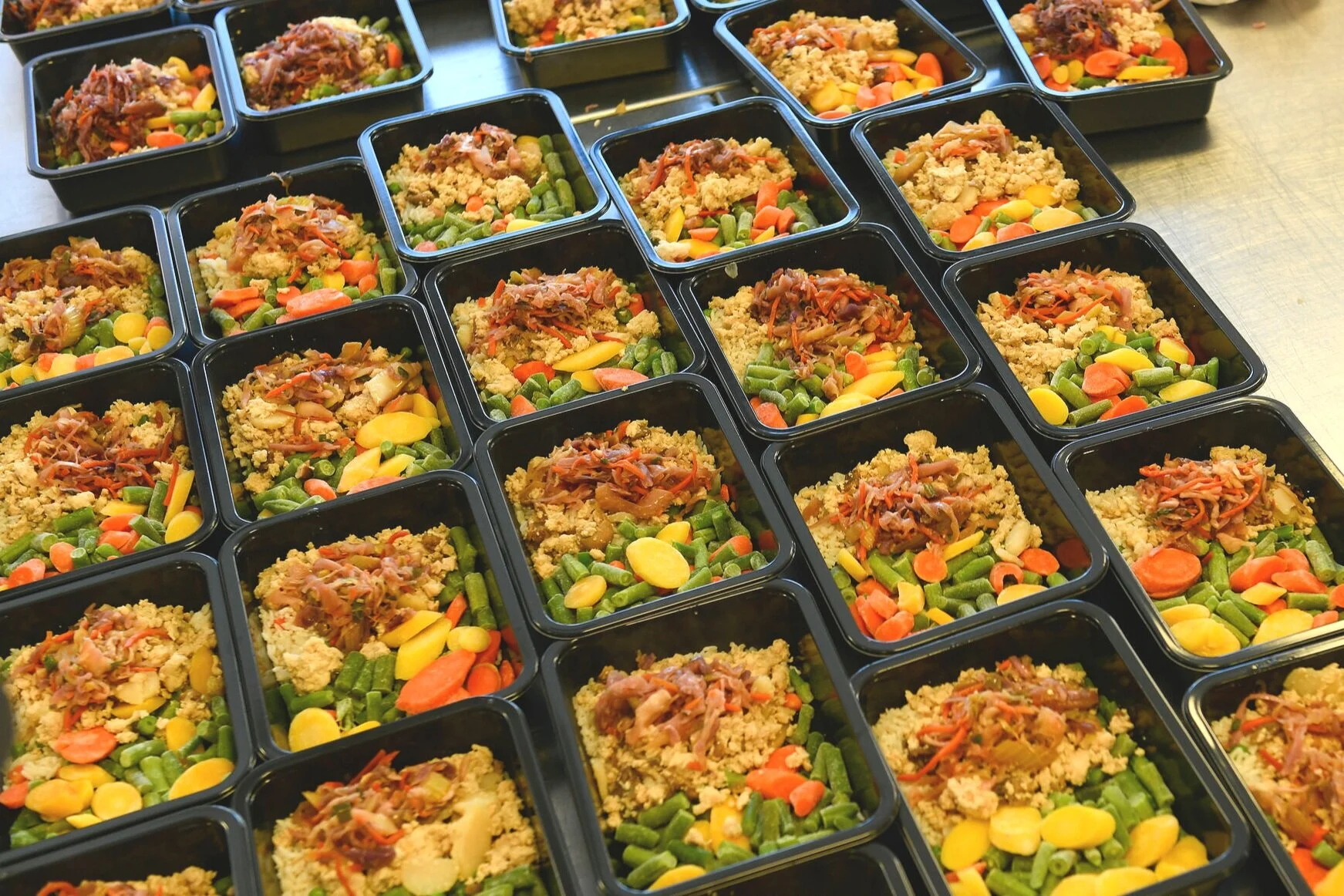A Chef's Need to Feed People Good Food, and Give Back
When food has to be moved and people are going hungry, you find a way to get the food where it needs to go.
So believes chef-restaurateur Fabrizio Facchini. When the pandemic hit, he rented a semi-trailer and drove to pick up the fresh food that had been collected from farms and factories and delivered it to food service kitchens and distribution centers.
Driving trucks was not part of his routine. His experience is as a chef-partner at restaurants like Michelin-hailed Antico Borgo in Italy, and Cotto in Manhattan. He also caters feasts for VIPs and celebrities like Andrea Bocelli and Luke Bryan.
But in early April he started Italians Feed America (IFA), a hunger relief and food recovery nonprofit, when he realized that so many of his food supply partners and friends had a lot of good food that was going to waste, restaurant staffs needed work, and frontline workers and down-on-their-luck families needed nourishing meals.
His need to feed people went deep. He set out to passa parola—spread the word.
He contacted his chef friends, food suppliers, and owners of top Italian food companies, saying: "We need to do something."
Stronger Together
Facchini felt compelled to use his experience and contacts to create a network to serve people in need.
He says: "I’m not American but I feel American. America has given opportunities to me and other Italians. I am lucky because I have food for me and my family. I need to help others who don't. This is a sign to say that we are here and we want to help. And I wanted to create something to say thank you."
He has collaborated with his Italian and Italian-food-loving colleagues in the food world (all volunteers) to collect and distribute ingredients like flour for pizza dough and mozzarella and tomatoes for any number of delicious Italian dishes. He also collects less perishable Italian food products like pasta, rice, honey, and beans.
Facchini points out: "These are not low-quality products. We’re giving people high-quality stuff. Even in this time of crisis, people in need can have some pleasure in eating and enjoying or learning about high-quality foods."
In the first month, IFA served 60,000 meals, and since launch Facchini's organization has helped deliver 150,000 meals.
Facchini began working with hospitals and school districts. His aim now is to continue to strengthen and grow his network. He has expanded to coordinate food distribution with other nonprofit organizations like Food Bank of NYC, Feeding America, and The Campaign Against Hunger, Teens for Justice, and NYC Department of Veterans’ Services.
Where The Money Goes
The donations IFA gets is mostly of food, which is the top priority. But Facchini says that monetary donations, which are tax deductible as IFA is a recognized food charity, are used largely for food transport.
People are willing to give food, especially perishable food, but Facchini says moving the food from the warehouses to the food banks and food-service kitchens is still the toughest part.
He's no longer driving massive trucks himself (though he still picks up and delivers food with his car when needed), but donations are used to rent trucks for a driver to pick up and distribute food around New York State.
Facchini says: "Donations are needed all the time. In this time of the virus, there are ten times more requests than usual because people have lost jobs and no longer have stimulus money or unemployment. These are people who need food for their families."
Facchini's focus is New York City, Long Island, and upstate New York, but when he has gotten calls for help in Boston, Chicago, Miami, and Los Angeles. he has contributed to food distribution there.
He says: "We're not physically there, but we put food suppliers in touch with local food banks and handle the logistics from New York."
Staying Committed As the Need to Feed Grows
Will he continue Italians Feed America now that restaurants are reopening?
Facchini acknowledges the harsh reality of the pandemic: "We have to continue. Things have gotten worse, not better in the months since we started. We don’t know when we are going to reopen fully. It won’t be an easy return for restaurants to normal life.
"We will return with fewer customers. With fewer patrons, less food is needed and fewer workers. It affects the whole system. We think this will be true for a minimum of a year or so.
"There are still going to be restaurant employees who will be out of jobs, yet they know only this, can do only this."
He says that New York City is a good example. Open now with outdoor dining but at reduced capacity, with many fewer diners.
He says: "Millions of residents have left New York City, and New York usually has 14 million tourists per year, but there are hardly any tourists now. There is so much loss and many fewer jobs.
"Not only is the virus killing people, but there is also a lot of collateral damage. The longer people don’t have jobs, don’t have money, can’t continue their lives—it is devastating."
They don't want to stop this operation "because we still have the same positive intention we had when we started," he says. "We want to continue to help. This pandemic was a sign for the world to be united. To help each other."
He also is encouraged by the positive reactions from those who receive the food. One message touched him: “'We are Italian Americans. We came to the United States in the 1950s, but it isn’t a good time for us. We enjoyed and were thankful for the free meals.'”
You can donate to Italians Feed America here.[]






